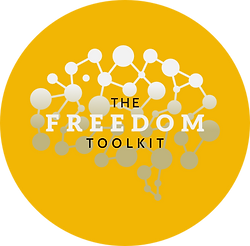Learn to live below your means
- Aug 6, 2025
- 3 min read
Updated: Aug 14, 2025

In other articles I have already discussed how you can free up money to invest with small changes to your spending habits.
Learning to live below your means is another one! Trust me, it can be done! I'm a living example.
Because of my bankruptcy, over 36% of my income disappears to pay off my debts. And yet, I'm not short of anything and can even save. You start living within your means.
Once I am free of the limitations of my bankruptcy , there will be so much money left each month to invest.
Example:
You work somewhere, earn a decent salary, but all too often, there's still a bit of month left at the end of your money. Your income comes in, and at the end of the month, it's all gone.
Then you get a promotion and you get an extra 10% per month.
Are you going to save this to create a buffer? Chances are, you won't. Because you've been strapped for cash for a while, you'll "reward" yourself with impulsive purchases, that slightly more expensive phone or that pair of sneakers you've been wanting for ages. Or you'll buy that slightly overpriced TV with consumer credit. And what happens at the end of the month? Nothing left over!
You have to ask yourself, "Am I looking for instant gratification, or do I want financial peace of mind first and then the freedom to buy what I want?"
I'm not saying you should deny yourself everything, but will that extra 10% make your life that much better?
Or will that extra 10% give you financial peace of mind because you save and then invest it, so that after a few months you have something to save for unforeseen circumstances?
Be more mindful of your spending habits. Do you really need that latest iPhone with an expensive contract, or would a SIM-free refurbished one be just fine? Do you really need that expensive car with a hefty lease, or would a smaller car also get you from A to B?
And if you have some savings, you can simply buy consumer goods without a loan. Because if you're not careful, you could end up with a lease contract for your bike and car, two consumer loans for your new TV and PlayStation, and a maxed-out credit card that you pay off monthly.
Add to that all your streaming service subscriptions, gym memberships and other small luxury expenses (e.g. pedicure, massage) and 20% of your income disappears every month to things you can actually do without.
Which you could also have invested at an 8% return per year so that your money works for you.
Will your quality of life improve so much if you spend that 10%? If you earn €10,000 a month, will you spend it all? Or €100,000? Or €1,000,000?
Probably not, right? Then you'll look at how you can hold on to that money and make more of it.
Conclusion
Everyone can save and invest. It's all about becoming aware of your spending habits.
So grab a piece of paper or open your laptop and list all your expenses.
Once you have it on paper, you can take action to improve your current situation.
Tip
At the beginning of the month, immediately set aside a percentage of your income in a separate account (preferably with a different bank) and don't touch it! Out of sight, out of mind, as they say. In your checking account, you'll (un)consciously adjust your spending to the amount in it, and that's how you build up a nest egg every month!




Comments